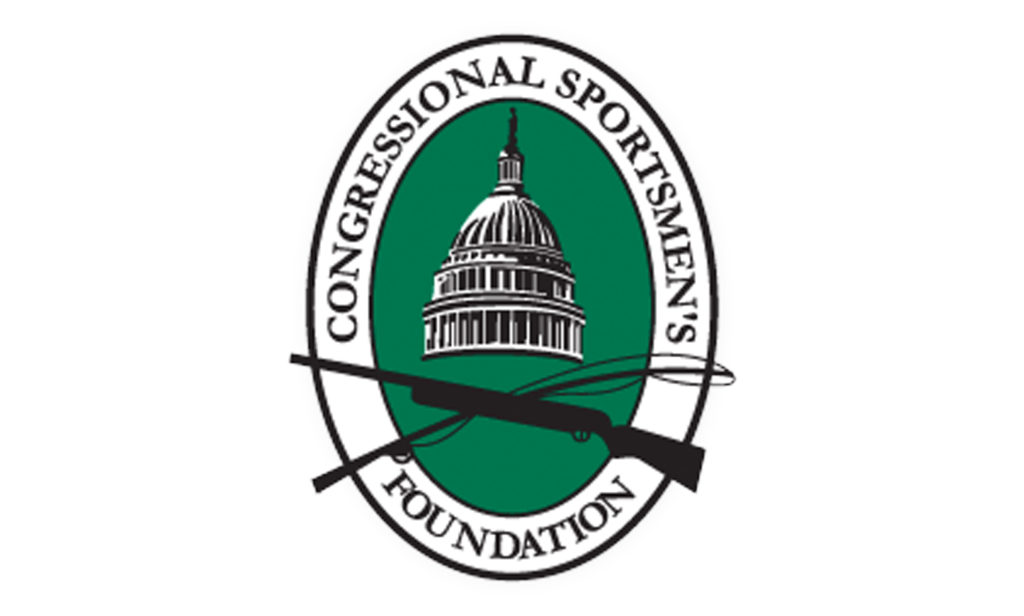Policy Corner Brief: April 2020

State Policy Updates
Idaho
Enacted Pro-Sportsmen Legislation as of March 27:
House Bill 330
As a direct result of the Idaho Department of Fish and Game working with local sportsmen to improve management and sporting community enjoyment, House Bill 330 (H330) increased non-resident hunter fees in an attempt to address resident hunter concerns surrounding the growing issue of over-crowding. Idaho is unique in the country in that it is one of the few states that is seeing an increase in hunting licenses year to year, as opposed to a nationwide trend of decreasing license sales. The Congressional Sportsmen’s Foundation (CSF) submitted a formal letter of support for H330, which was enacted on March 3.
Pro-Sportsmen Legislation Awaiting Governor Little’s Signature as of March 27:
House Bill 544 & 545
Both Idaho Department of Fish and Game initiatives, House Bill 544 (H544) proposes the expansion of the upland game bird program to additional properties outside of wildlife management areas, while House Bill 545 (H545) aims to establish a season for tundra swans within the northern portion of the state. H544 would complement current state and nationwide efforts to increase hunter recruitment, retention and reactivation by offering additional upland game bird hunting opportunities for sportsmen and women throughout the state. Additionally, H545 would increase hunting opportunities within Idaho, as well as increase the monetary contributions of sportsmen and women to state conservation through the American System of Conservation Funding. H544 and 545 passed out of the Senate on March 17 and are currently waiting on Governor Littles signature. CSF formally supported both pieces of legislation.
Michigan
This bill would require anyone 16-years-of-age or older to purchase a $25.00 pheasant stamp. This stamp would be required in addition to the base license that Michigan requires all hunters to possess in order to hunt small game species. Revenues generated from the stamp would be used to benefit pheasant hunting in the state, with 75% dedicated to support the Michigan Pheasant Hunting Initiative and 25% dedicated to maintaining and expanding pheasant habitat. Established in 2019 by the Michigan Department of Natural Resources (DNR), the Pheasant Hunting Initiative releases pheasants on a weekly basis at several game areas across the state during the months of October, November and December. The DNR’s Pheasant Hunting Initiative also hosted two released-pheasant youth/novice hunts, one on each of the east and west sides of the state. The creation of the pheasant stamp would ensure the program is self-funded by pheasant hunters and would not interfere with funding for the Pheasant Restoration Initiative, a successful program that creates pheasant habitat across the state. HB 4313 was expected to pass out of the House before the legislative session was suspended.
Missouri
Prescribed Burn Act (SB 661 & HB 1547)
Introduced at the beginning of the 2020 legislative session, each of these bills would protect landowners and managers against liability for damages caused by prescribed fires, or the smoke produced by a prescribed fire, unless the landowner, in accordance with a written burn plan and under the direction of a prescribed burn manager, is proven to be negligent. Prescribed fire is one of the most effective management tools available to landowners. Fires are used to improve habitat conditions for many species of wildlife (including many game species), reduce fuel loads to help mitigate future wildfire risks, and improve forest health.
In both bills, the authors and co-sponsors, including Missouri Legislative Sportsmen’s Caucus Co-Chairs Representative Tracy McCreery, acknowledge that prescribed burning is a tool that benefits public safety, the environment and the economy. On March 2, CSF submitted a letter of support for SB 661 to members of the Missouri Legislative Sportsmen’s Caucus supporting the current language. Currently, both bills have been passed by their first committee and await further consideration in their chambers of origin.
Conservation Sales Tax Reallocations (HJR 107 & HJR 112)
These bills sought to decrease the amount of revenue that the Missouri Department of Conservation receives from the currently 1/8 of 1% Conservation Sales Tax. Annually, this tax on all goods and services generates approximately $120 million in critical conservation funding. This supplement to the American System of Conservation Funding was approved by legislators and Missouri voters in 1976 and remains the benchmark for other states seeking to supplement conservation funding. Fortunately, HJR 107 was removed from consideration and HJR 112 has seen no action since introduction in early February.
SHARE ON
You may also like
The role corn plays for gamebirds and economies ac...
Sportsmen’s conservation policy issues from publ...
Sportsmen’s conservation policy issues from publ...


























